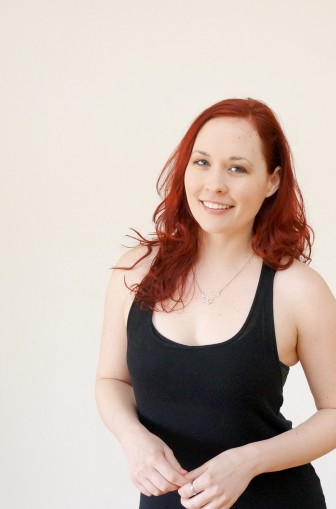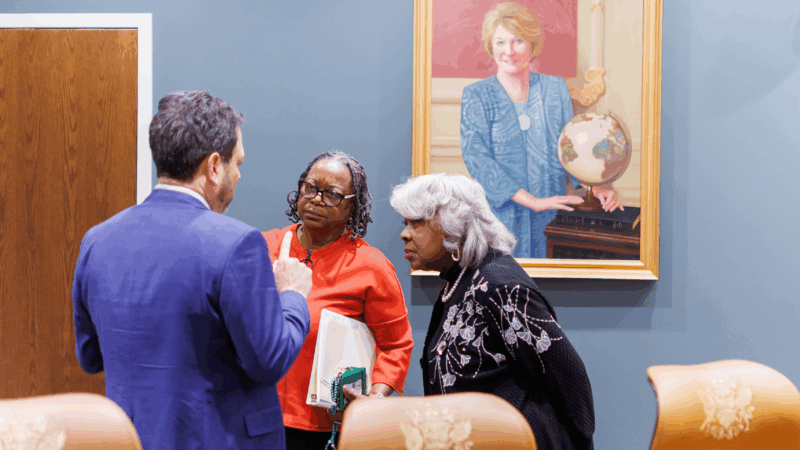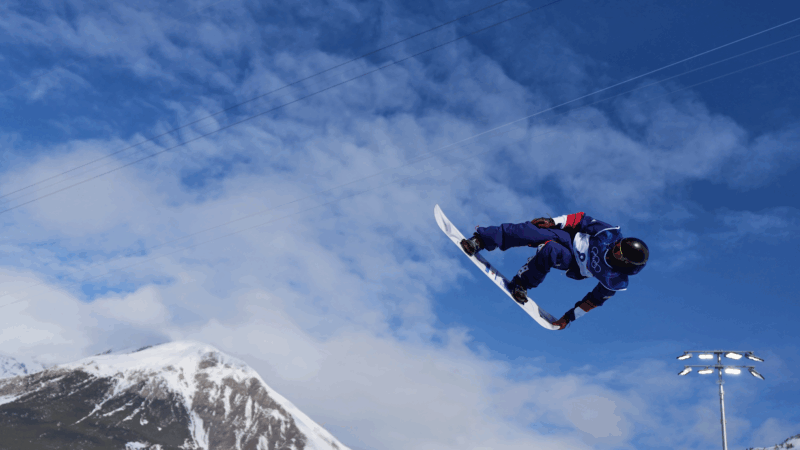White Girl In Yoga Pants Author Talks Trauma, Healing
If you’ve made a yoga-related New Year’s resolution, you might come across Melissa Scott. She teaches yoga in Birmingham and online, and for her, it’s more than a hobby. She’s published a book called “White Girl in Yoga Pants: Stories of Yoga, Feminism, and Inner Strength.” And as she tells WBHM’s Dan Carsen, yoga has helped her overcome painful struggles, including an eating disorder and a sexual assault. Below are some highlights of their conversation.
It Started as Just Physical
“I came to the yoga practice as a purely physical practitioner. I was a dancer from the time I was three all the way through college and I started doing yoga as part of my dance training. It was just something physical to do to stay in shape. But over time, it became a spiritual practice, it became a mindful practice, it became a place to cry and laugh and work through my stuff. When I came to the practice, I was kind of deep in the throes of an eating disorder and had not been diagnosed yet. And yoga, more so than anything, kind of opened the door for me to get healthy … About a year after I got healthy, I pursued teacher training for yoga, and that, I always say, kind of sealed the deal. Then I had a reason to stay healthy because I was teaching people.”
One Way it Helps
“If you’re doing yoga practice, and you’re really invested in the practice, you’re feeling things. You’re feeling physical sensations, you’re feeling emotions that come along with those physical sensations, you’re really thinking your thoughts without being distracted … I was able to actually feel the feelings that underlie my eating disorder. And once you feel them. you have the opportunity to work through them.”
Sexual Assault
“The year before I started doing yoga, I was sexually assaulted twice by an acquaintance. It was a man who was quite a bit older than me and in a position of power in my life — not an uncommon story. Certainly with the Me Too movement, we know that a lot of women have been through similar things, but it took me about 10 years to actually call it a sexual assault. I had a lot of what a lot of people experience: I had a lot of shame, I had a lot of guilt, I had a lot of self-blame around that.”
Why Write the Book?
“I hope that it gives someone permission to tell their own story. None of us have a perfect, shiny, beautiful story. And I think that we can really stress ourselves out trying to make things look nice, when really the beauty is in being courageous and being vulnerable and telling the parts that are harder to say.”
‘White Girl’ Not All Serious
“I picked the title first and foremost because it made me laugh. The book deals with some really heavy themes, and I wanted something that communicated [that the book is] not all doom and gloom. There is some humor, there is some lightness behind all this. And the ‘white girl in yoga pants’ trope is very relevant to my life. But also the book is about yoga, and it’s also about, what does it mean to be a woman? And then I talk about other issues around identity. I talk about white privilege. I talk about what that means to me and what I’ve learned about that. I’m no expert, but I’m trying.”
FBI releases description of suspect, increases reward in Nancy Guthrie case
The FBI describes the armed man caught on Nancy Guthrie's camera as 5-foot-9-inches to 5-foot-10 and of average build. The 84-year-old mother of Savannah Guthrie has been missing since Feb. 1.
Virginia court allows Democrats’ redistricting vote in their plan to counter to Trump
The ruling allows an April election where voters can let the legislature draw a new congressional map. It could help Democrats win more House seats. Republicans might still fight it in court.
A familiar move with a new twist: Trump tries to cut CDC funds he just signed into law
A federal judge in Illinois quickly issued a restraining order after the Trump administration slashed more than $600 million in CDC grants to four blue states.
Kitty cats and cloud hands – how U.S. Olympic snowboarders keep calm in competition
U.S. snowboarders psych themselves up before competition with heavy metal and pop music, cat photos, and apparently many on the men's halfpipe team now do Qigong.
Britain’s High Court says government illegally banned Pro-Palestinian group
In its ruling, the court said an earlier decision to ban the Pro-Palestinian group Palestine Action as a terrorist organization was "disproportionate."
On their way! 4 people on NASA Crew-12 mission launch to International Space Station
The four people are set to dock with the I.S.S. on Saturday, returning the orbital lab to its full complement of seven. NASA's last mission, Crew-11, left a month early due to an ill crew member.






